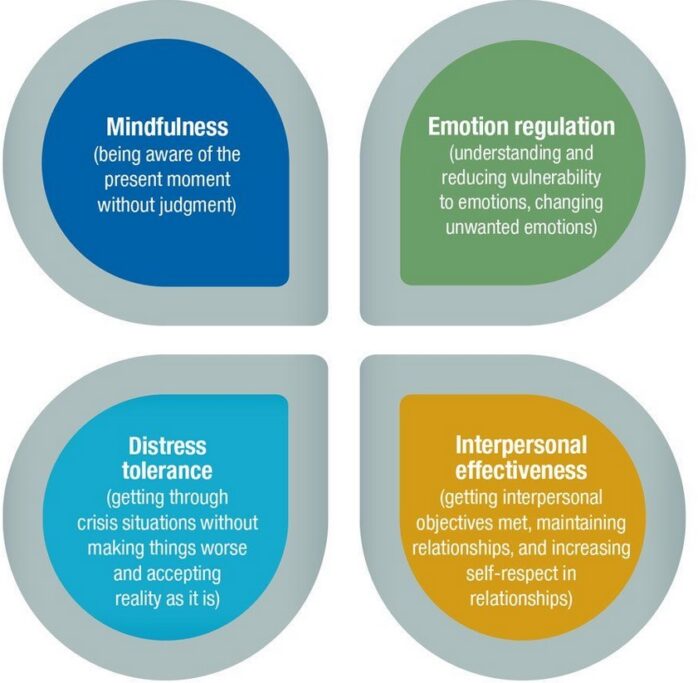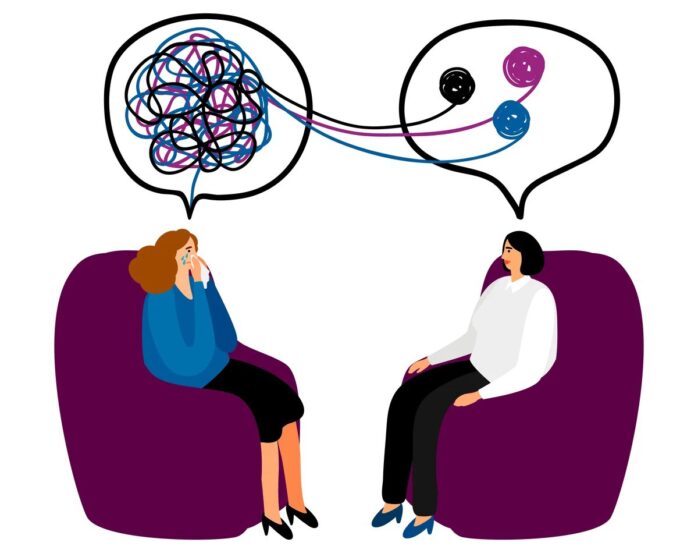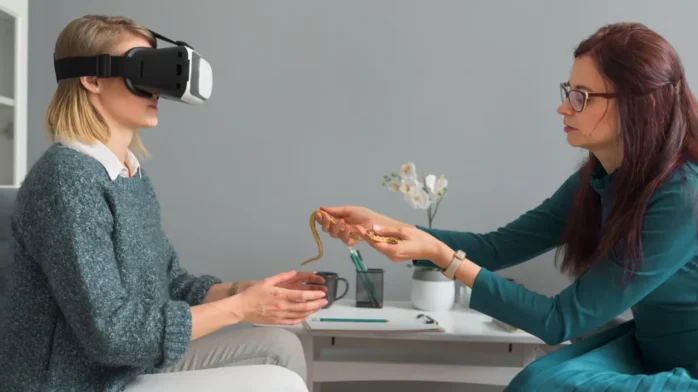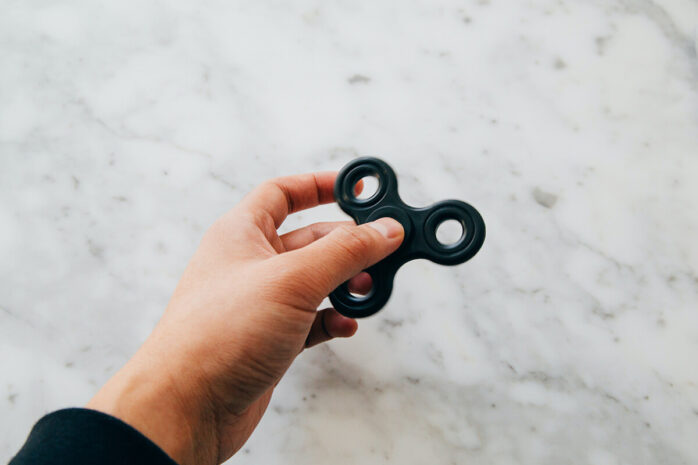The post is developed in partnership with BetterHelp.
Impulse control disorder is a disorder characterized by the inability to make decisions, an increase in impulsive urges, violent or risky behavior, and a lack of thought before action. The disorder can come with extra symptoms as well, such as anxiety and stress or difficulty controlling anger.
If you have been diagnosed with impulse control disorder, you may be wondering what you can do to find relief. We’ve come up with seven options for those with impulse control disorder to get help.
1. Dialectical Behavioral Therapy (DBT)

One of the most productive types of behavioral therapies is DBT or dialectical behavioral therapy. This therapy was initially created for those struggling with borderline personality disorder (BPD), which has similar symptoms to impulse control disorder in some ways.
During the therapy, you will work with a therapist or DBT trainer through the DBT workbook, which is a workbook with four main modules and courses. These include:
- Mindfulness
- Emotional Regulation
- Interpersonal Skills
- Distress Tolerance Skills
You will focus on one module at a time, usually starting from the mindfulness section. Each module will give you the behavioral skills to target certain behaviors in your own life.
You will learn how to meditate and practice mindfulness, how to change unwanted emotions, how to form close and valuable relationships and leave unhealthy ones, and how to tolerate change and extreme emotional distress.
Since impulse control disorder is often a response to intense emotions, this therapy can help you learn to regulate your emotions in a way to regulate your impulses and learn new methods of getting what you want. DBT can also be done in a group therapy setting.
2. Cognitive Behavioral Therapy (CBT)

Cognitive-behavioral therapy, or CBT, is often what we think of when we say “traditional talk therapy.” It consists of talking through your feelings and behaviors with a behavioral specialist or therapist to learn new ways to react to stress and impulses.
Although not useful for everyone, sometimes talking through something can help you understand why you feel it or what the reasoning behind it is. Talking through your choices can also help reduce impulses, as it helps you realize the harmful effects constant impulses can create.
You can even find a therapist online these days and choose one who understands your identity and has researched your condition. If you want to learn more about that and impulse control disorder, check out this great site here.
3. Exposure Therapy

Exposure therapy is another type of therapy that can be beneficial for impulse control disorder. If your impulses feel more like compulsions or reactions to obsessive or intrusive thoughts, you may be struggling with OCD or a behavioral pattern that can also be seen in patients with OCD.
Compulsions are hard to rid yourself of. Many people with impulse control disorder will make impulsive choices because they feel distressed if they don’t.
Exposure therapy puts you up against your worst fears and allows you to feel large amounts of discomfort in small amounts of time. The idea is that over time, your body will no longer associate fear with regular behavior and emotions any longer.
You will want to make sure you find a highly trained specialist when looking into this type of therapy, as it can be traumatizing if you’re not ready.
4. Putting Your Impulses into Healthy Habits

One way to reduce harmful impulsive behavior is to utilize your impulsive urges in non-harmful ways. Many people who struggle with impulsivity try this method, and it works!
Some things you can try when you’re feeling impulsive include:
- Driving to a swimming hole and jumping in (you can even do it in your clothes!)
- Going for a drive and singing (at safe speeds and with a license/insurance)
- Getting tattoos or piercings
- Donating a small amount of money instead of spending it on something you don’t need
- Signing up for a class
- Taking on a new hobby
- Learning something new (check out some non-fiction books from the library!)
- Going for a long walk
- Going for a night walk
- Riding horses
- Planning a trip (and going when you have all the resources you need)
There are so many ways to be impulsive in healthy ways. Most of these are free, and you don’t need to spend money to partake in them. You also don’t need to use drugs or alcohol to enjoy them.
5. Long-Term Mental Health Treatment

If you are struggling with not partaking in extremely risky behaviors such as self-harm, risky and unsafe sex, drugs and alcohol, or violent behavior, it may be beneficial for you to get long-term healthcare.
There are several options available, ranging from 2 weeks to years. Smaller long-term care facilities will often allow you to stay for up to a month, and you may even be allowed to keep your phone while you’re there.
Longer long-term care facilities may be something like a government psychiatric hospital. In that case, you’ll likely be kept against your will or longer than you’d like to be. However, these facilities can be helpful if you find the right treatment.
6. Medication

Medication can help those with ICD. Talk to your psychiatrist and medical doctor to come up with a plan that is good for you. If you’re taking drugs or drinking, you should disclose this before taking any new medication, as drugs and alcohol can be dangerous for your body if you’re taking a new medication.
7. Learning to Control Impulse Through Tracking and Limiting Behaviors

Tracking and limiting behaviors is one other way you can reduce the harm of your symptoms. You can put limits on your debit card, take out an ATM card with limits, and give your card to someone else that you trust. When you have the urge to spend money, you’d have to speak to the person who is holding the card for you, and this may deter you.
You can also use budget apps and tracking apps to track your spending and see how your impulses really affect your balance or bank account in different ways.
The post 7 Ways to Find Relief With Impulse Control Disorder appeared first on FotoLog.
from FotoLog https://ift.tt/GS8CmLb
via IFTTT


0 Comments